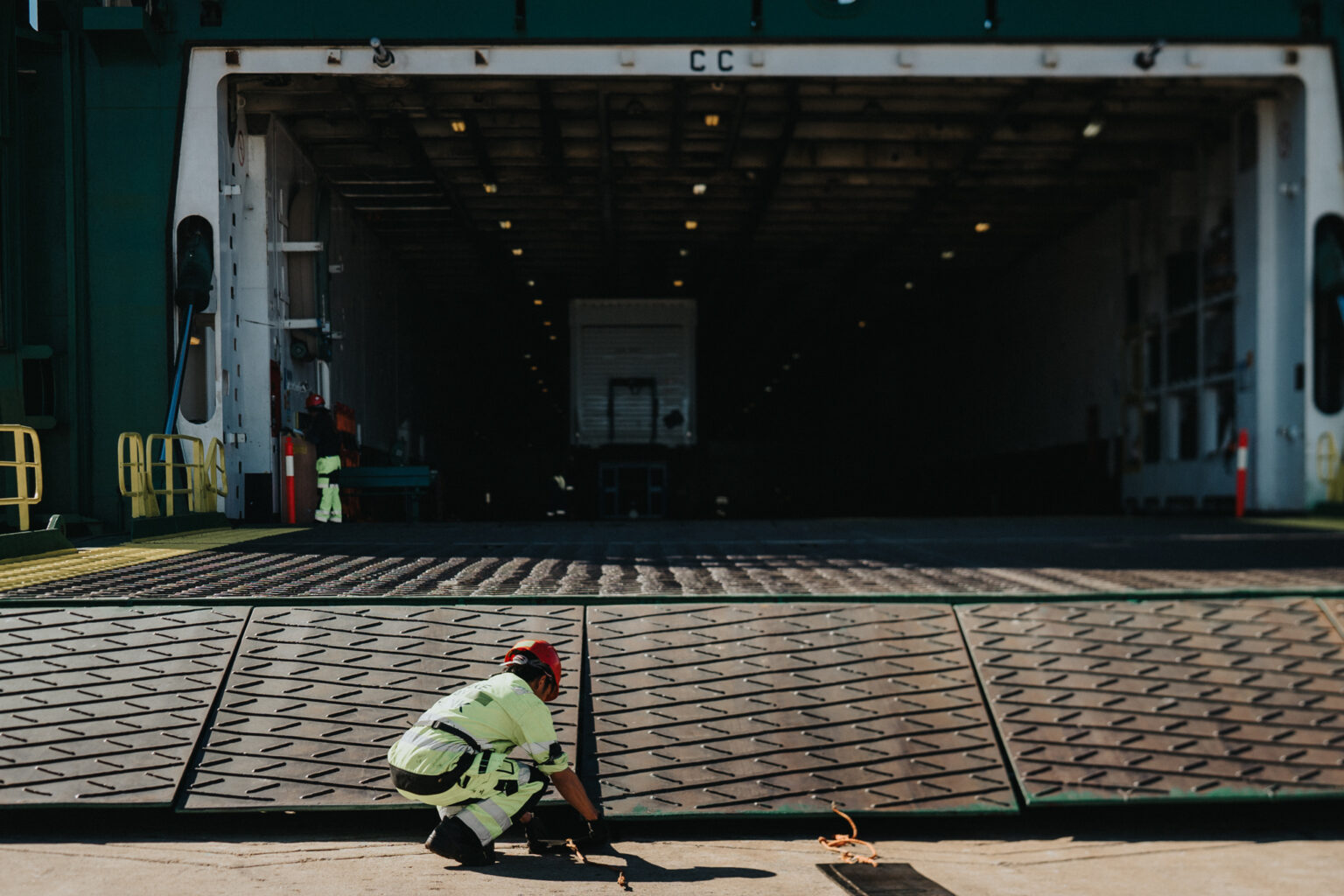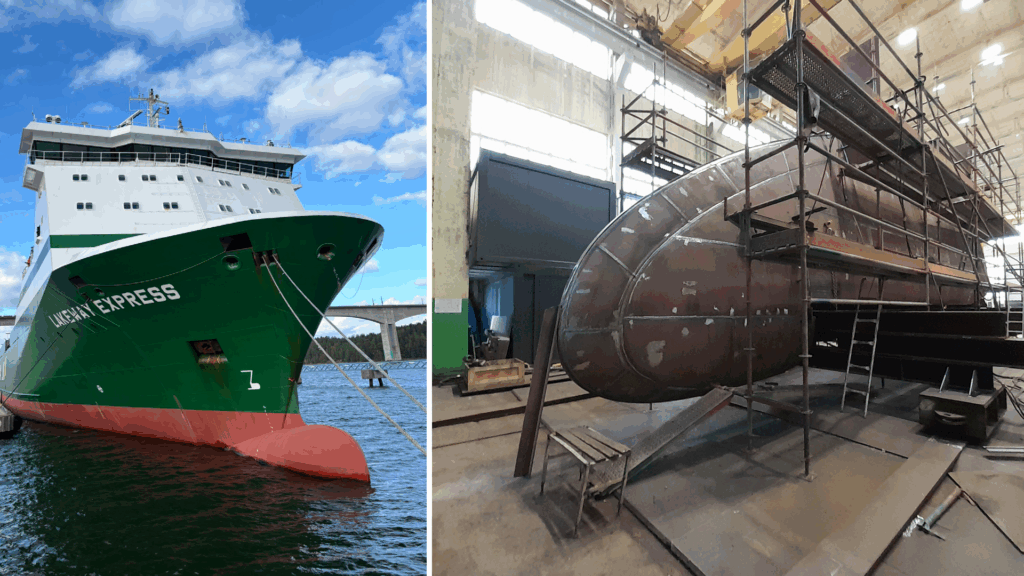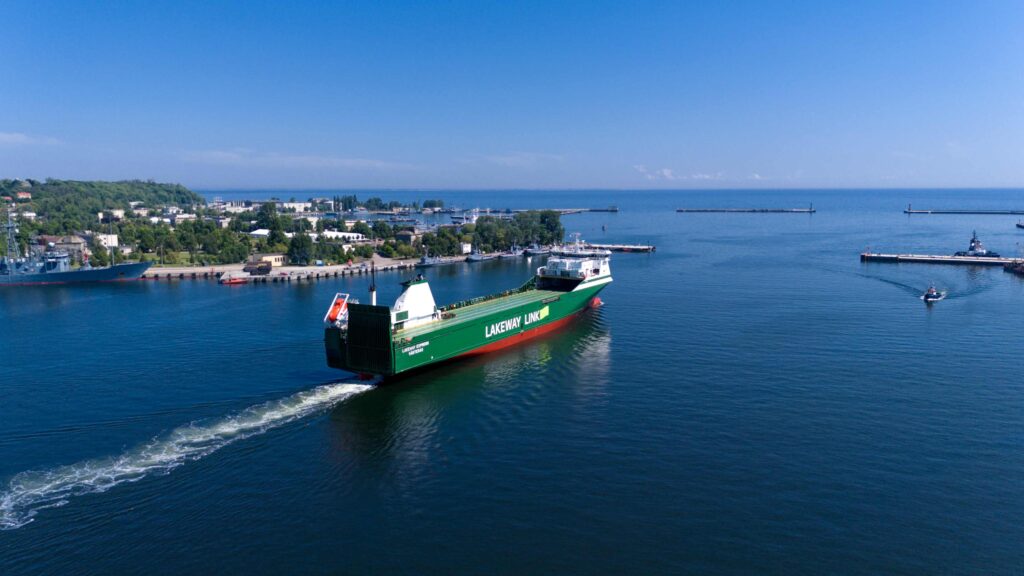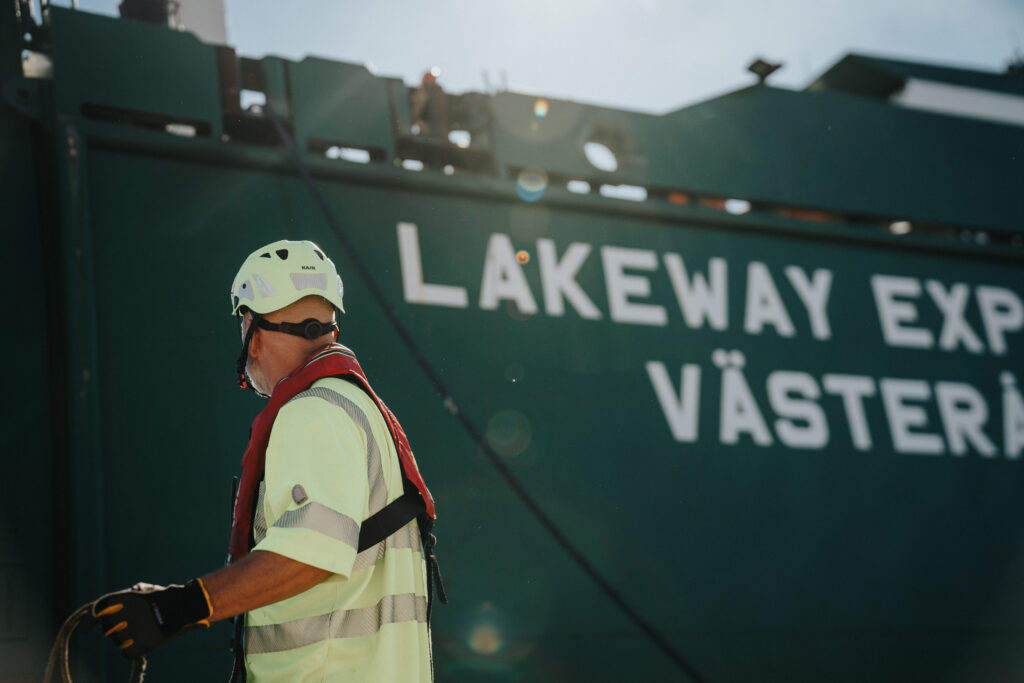Here are five compelling reasons why this sea route is gaining traction with shippers.
1. Shorter transit times and predictable scheduling
The RoRo connection between Gdynia and Södertälje offers a direct maritime route that takes approximately 22 hours port-to-port. This eliminates the need for long and unpredictable overland journeys across several borders. By avoiding road congestion, customs delays, and toll routes, freight can move more efficiently—helping shippers better meet tight delivery windows and reduce costly delays.
2. Cost savings with driverless trailer transport
Lakeway Link’s RoRo service allows unaccompanied trailers, meaning there’s no need to send a driver with the cargo. This reduces labor costs and frees up drivers for domestic or short-haul assignments. With the ongoing driver shortage across Europe, this is not just a cost-saving measure—it’s a strategic logistics advantage.
3. Ideal for high and heavy cargo
Whether transporting construction equipment, industrial machinery, or other oversized freight, RoRo shipping is tailor-made for high and heavy cargo. Lakeway Link’s vessels are designed to handle challenging loads that may be difficult or restricted on European road networks. This makes sea freight a safer, more efficient option for out-of-gauge or non-standard cargo.
4. Lower emissions potential through modal shift
Compared to traditional road transport, sea freight can offer a lower carbon footprint per tonne-kilometer under certain conditions. By consolidating large volumes of cargo onto a single RoRo vessel, this service may help reduce the total number of trucks on the road, which in turn can lessen overall emissions and congestion. While the environmental impact depends on multiple factors—such as vessel efficiency and fuel type—the Gdynia–Södertälje route offers a practical opportunity to support a shift toward more energy-efficient transport modes. This aligns with broader industry goals to improve sustainability and meet evolving regulatory and customer expectations.
5. Enhanced reliability and capacity
Each sailing can carry over 100 trailers or equivalent cargo units, providing ample space and scheduling flexibility. The fixed schedule and weather-resilient nature of Baltic Sea crossings increase reliability compared to road transport, especially during the winter months when road conditions can be hazardous.
A strategic link across the Baltic Sea
The RoRo shipping route between Gdynia, Poland and Södertälje, Sweden is tailored to the needs of companies transporting freight across the Baltic Sea. This direct maritime connection offers a reliable alternative to congested road and land transport routes, helping improve schedule stability and streamline logistics planning.
Ideal for both standard trailers and high and heavy cargo, the route reduces dependence on overland haulage and supports more efficient cross-border transport operations. Operated by Lakeway Link, this RoRo service forms a vital sea corridor between two key industrial regions in Northern Europe.
Learn more about how Lakeway Link can streamline your Poland–Sweden cargo transport: Contact us today.



